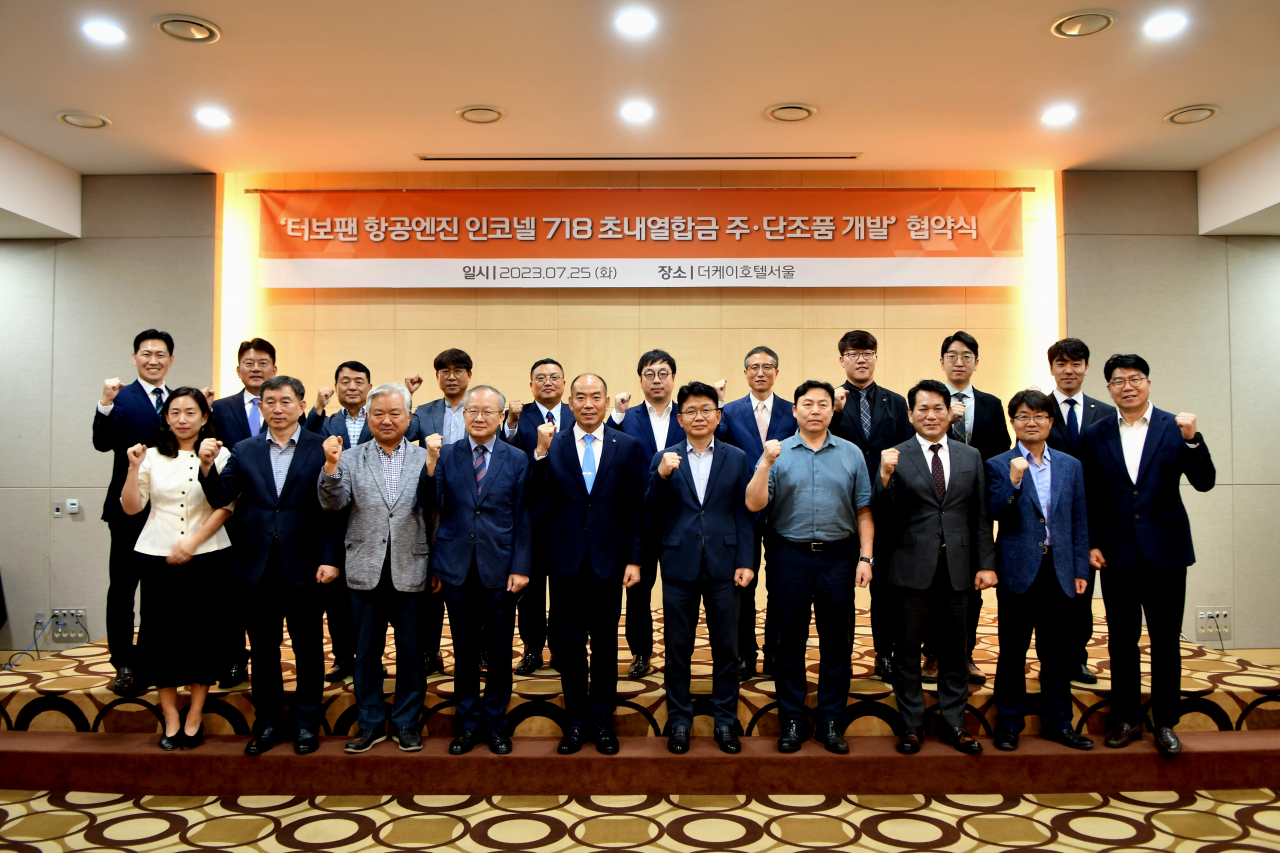 |
Officials from Hanwha Aerospace, the Korean Institute of Metals and Materials and other organizations pose for a photo at a signing ceremony for a jet engine materials research and development project at a hotel in Seocho-gu, Seoul, Tuesday. (Hanwha Aerospace) |
Hanwha Aerospace on Wednesday said it is poised to develop engine materials for fighter jets in a move to bolster the nation’s self-defense capabilities.
The defense and aerospace unit of Hanwha Group signed a memorandum of understanding with the Korean Institute of Metals and Materials, the Korea Aerospace Technology Research Association, the Korea Evaluation Institute of Industrial Technology and Seoul National University on developing, forging and casting materials for Inconel 718, a specially alloy used in aircraft engines that is resistant to high temperatures over 1,500 degrees Celsius.
Currently, Korea depends solely on imports to secure such materials.
As part of a state-run project, Hanwha Aerospace aims to secure the Inconel 718 manufacturing technology and create a related database by 2026.
“These engine materials are so dependent on imports that they can be put at risk when our trading partners decide to limit the amount they import,” said an official from Hanwha Aerospace. “Joining hands with (key players in) industry, academia and research institutes, we will make efforts to boost the nation’s self-defense capabilities using home-grown technology, as well as defense exports.”
In January, Hanwha Aerospace set out to develop key materials for gas turbine engines in a next-generation unmanned combat aerial vehicle called the Unmanned Compound Combat Rotorcraft.
Under the 48.8 billion won ($38.2 million) investment, it plans to make materials such as titanium and nickel alloy that are used in six key parts of the aircraft's engine by 2027. It is the first time for a Korean company to embark on developing materials in gas turbine engines with over 1,000 hours of lifespan.
With the latest deal, the company is developing engine materials for piloted aircraft.
In the January-March period this year, Hanwha Aerospace’s defense business division posted 841.5 billion won in sales and 177 billion won in operating profits, marking a 2.5-fold and 51.1-fold on-year increase, respectively. Exports made up 56 percent of Hanwha Aerospace's sales.







